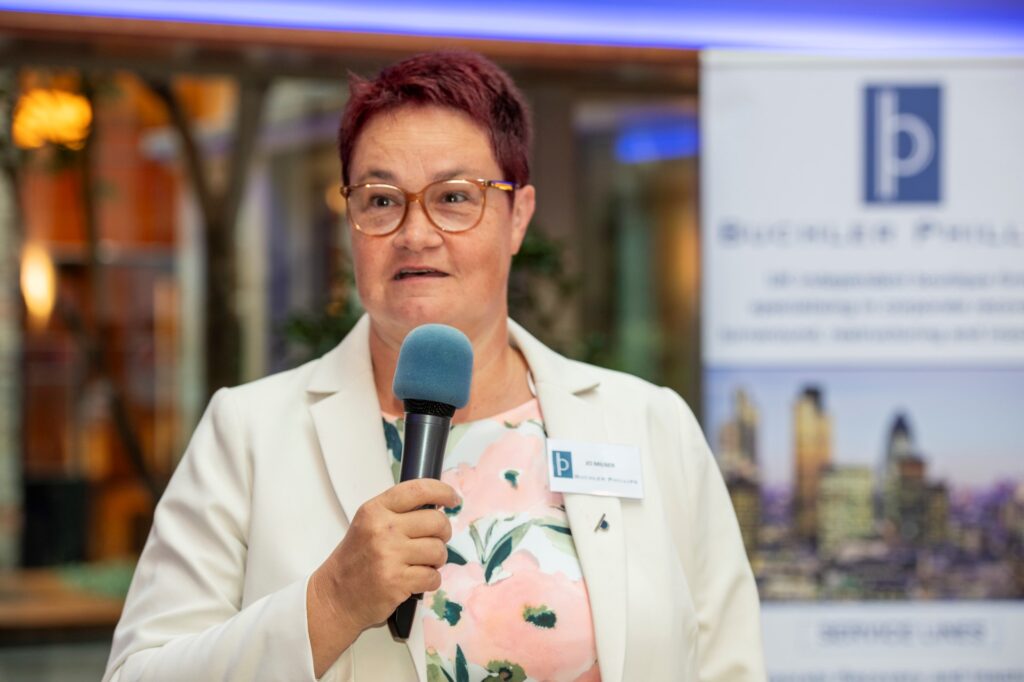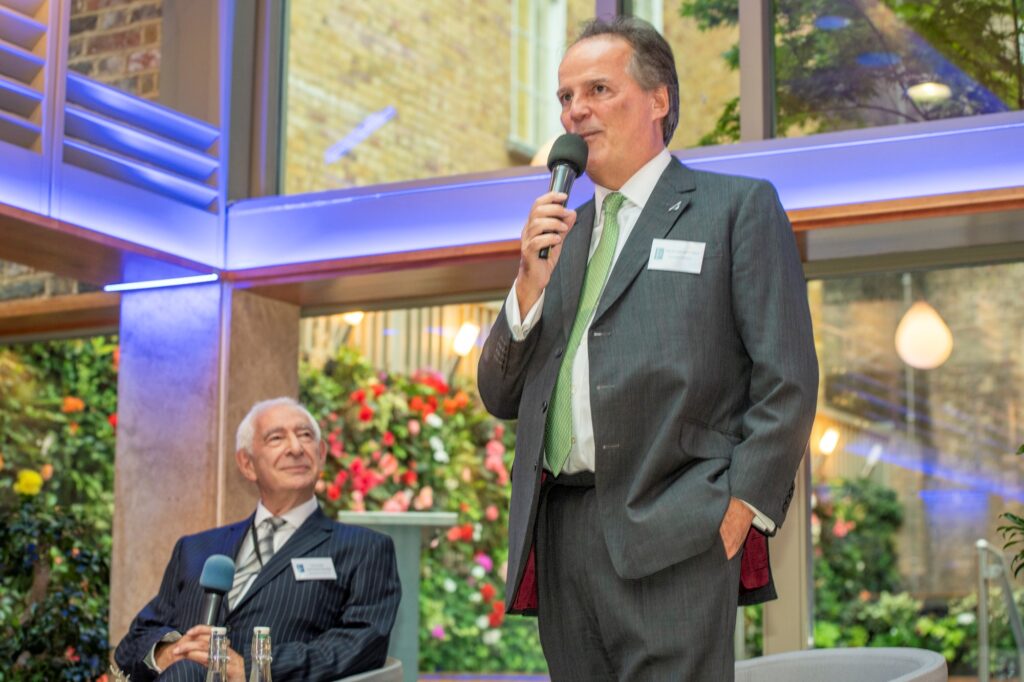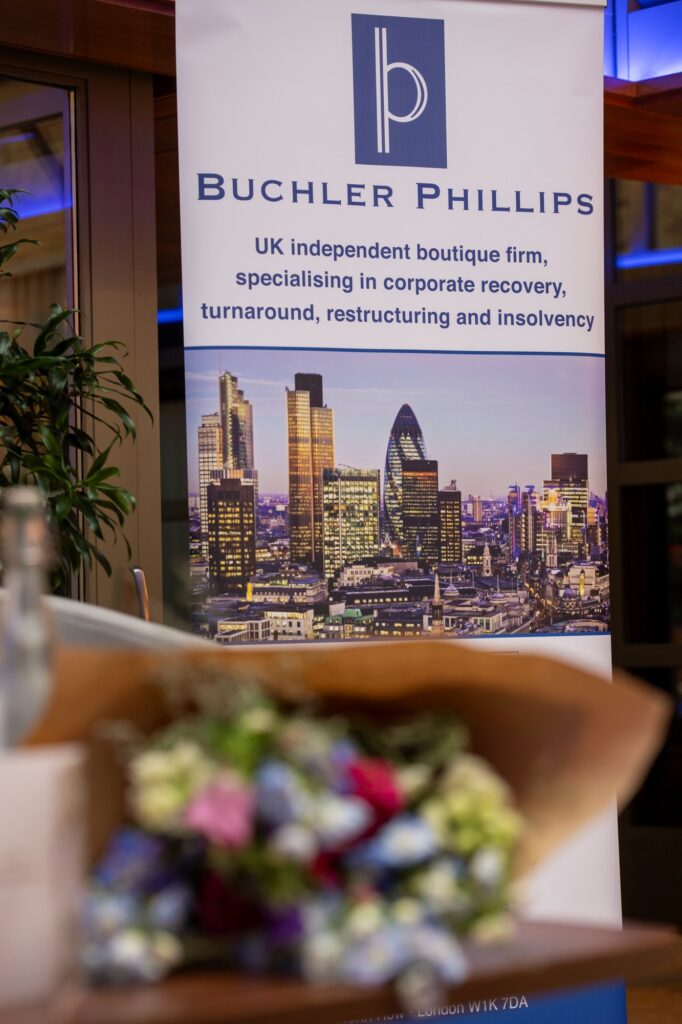Has it really been 35 years? In some ways it seems like only yesterday that my fellow Arthur Andersen insolvency partner Peter Phillips and I set up shop in Mayfair. To set the scene in 1988: the Piper Alpha oil rig explosion had killed 167 and would rock the Lloyd’s insurance market for years to come; UK car sales exceeded two million for the first time, led by the Ford Escort; 21 year old Paul Gascoigne joined my beloved Tottenham Hotspur for £2m, while Ian Rush broke transfer records for not much more when he re-joined Liverpool from Juventus. To make us all feel old, those born in 1988 include boxing champion Tyson Fury, comedian Jack Whitehall, footballer Micah Richards and rapper Tinie Tempah.
Buchler Phillips is privileged to have been involved in some of the most complex and fascinating insolvency and restructuring assignments of the last 35 years, in the UK and beyond: the receivership of Robert Maxwell’s private estate; joint liquidator of Leyland DAF Ltd; at Lloyd’s of London, unravelling the LMX spiral in respect of the 1992 and prior year losses for marine, aviation and property catastrophe claims; this year, the administration of the UK’s CargoLogicAir Ltd amid sanctions against Russian owned businesses. The firm has supported individuals in bankruptcies of all sizes, devised creative, sustainable turnaround solutions for businesses in the last chance saloon, and returned many millions to frustrated creditors. We are equally proud of the many leading practitioners who have trained at, passed through and sometimes returned to the firm. It’s a roll call of some of our industry’s leading players.
Aussie chanteuse Kylie Minogue was number 1 in 1988 with I Should Be So Lucky. That’s exactly how I feel when I look back at the business we’ve built over 35 years. It continues to go from strength to strength under our wonderful Managing Director Jo Milner and her talented team. Here’s to the next 35 years!
David Buchler, Chairman

We’re not out of the inflation woods yet
Inflation across the U.K. fell unexpectedly in August to 6.7%, its lowest level since Russia invaded Ukraine, raising hopes that the Bank of England will make its next interest rate hike the last. Lower hotel and air fare costs and an easing of food price inflation have helped offset an increase in energy prices on the back of higher crude oil prices.
Nonetheless, inflation remains way above the Bank of England’s target rate of 2% and higher than any other G7 major economy. A near 16-year high of 5.5%. is on the cards for base rates. Sure, borrowing rates may have peaked, but many homeowners presently on better mortgage rate deals will face much higher costs if their fixes end this year or even next. The same goes for businesses and energy: new fixed rates are becoming available after a year of pain for many enterprises, but these remain around 50% above ‘pre-Ukraine’ levels. Piling on the woe for businesses, wage inflation remains extremely high, with few signs of abating. September figures showing the picture from May to June 2023 reveal annual wage growth of 7.8%, its highest level since 2001.
Staff issues will keep inflation relatively high in the foreseeable future. Work patterns and career priorities have been changed by Covid’s disruption to ‘normal’ working life. Retaining and recruiting skilled staff is increasingly challenging and, regardless of motivations cited by employees, financial incentives remain the strongest tools for attracting talent and slowing staff turnover. The main alternative is attempting to recruit from a wider pool. This applies not only to executive and skilled positions, but to the less skilled end of the workforce, where relatively cheap labour is no longer readily available. Both these tightening factors in the labour market have added to a wage spiral and have been compounded by the effects of Brexit on labour supply at all levels. The potential for valuable working capital to be impacted adversely by recruitment issues is very real.

UK insolvencies
Soaring interest rates and stubborn inflation forced 2,308 businesses into insolvency in August 2023, up a fifth on the same month last year and above pandemic levels. Most were Creditors Voluntary Liquidations (CVLs) – directors throwing in the towel while they could still make the decision.
Compulsory liquidations rose 45% in June to 221 after a surge in winding-up petitions presented by HMRC for unpaid tax. Construction companies, retailers and manufacturing firms headed the list of sectors most affected by firms becoming insolvent. The retailer Wilko, which went into administration on 10 August and has subsequently collapsed with the loss of 12,500 jobs and 400 stores , is expected to herald further company insolvencies in the remainder of the year.
Apart from the immediate problem of wrestling with high wage expectations, it shouldn’t be forgotten that a large number of businesses emerged from Covid already with too much debt. The prospect of servicing those borrowings at steeply higher rates was far from their minds, even 18 months ago. Expect CVLs to remain at pre-pandemic levels for the foreseeable future, while company compulsory liquidations will continue to be driven by HMRC, after an extended period of Covid-related forbearance.
Individuals operating close to the financial edge may face the same fate, although insolvencies for individuals fell 11% on an annual basis in August, apparently owing to a decline in the number of Individual Voluntary Arrangements. In addition, breathing space applications – which hold off creditor action for 60 days so that people in debt can reorganise their finances – jumped 19% on a year ago.

Less room at the inn as pubs show new sign of life
A recent poll by hospitality experts CGA reveals that 62% of hospitality leaders feel optimistic about their businesses’ prospects for the next 12 months – an 8% increase from the figure recorded in the previous survey in May. The proportion of those leaders optimistic about the hospitality market in general has also risen, from 40% to 45%, in recent months. It is still relatively low, but suggests pubs, bars and hotels may be holding their own in a very tough climate for consumer spending.
Fullers, the London based pubs group, posted a return to strong like-for-like growth for the early summer period, while Stonegate Group, which owns chains including the Slug & Lettuce and Yates’s, has found a creative way to help cover soaring costs – raising prices at 800 of its venues during peak times, such as weekends. The hospitality sector appears to be enjoying a certain level of support from cash-strapped consumers who are forgoing purchases of items, yet are still happy to spend on relatively inexpensive socialising and ‘experiences’.
Of course, not all pubs are the same. Those which have pivoted successfully to become mainly restaurants are faring better than traditional boozer, which have their work cut out convincing drinkers to venture out for the privilege of paying many times more per pint than they might in a supermarket. Last year close to 7,000 hospitality businesses – pubs, cafes and restaurants – entered into insolvency. Those determined to tough it out, emboldened by a more optimistic outlook, may find it worth exploring some more radical measures beyond merely cost savings and efficiencies: property leases and turnover based rents; hospitality industry-specific aspects of tax, VAT, PAYE and possible negotiations with HMRC; asset reviews; and leasing or financing options for equipment.

As ever, the Buchler Phillips approach to business challenges is ‘workout, not bail out’. Don’t hesitate to get in touch for an exploratory chat if your business needs help. Addressing the cracks now will, in many cases, avoid the need to start again.
Our helplines below are open for free initial consultations.
Jo Milner 07990 816904
David Buchler 07836 777748
Let’s get to work!

About Buchler Phillips
Buchler Phillips is an independent, UK based corporate recovery and restructuring firm, with an impeccable Mayfair heritage dating back to the 1930s.
Led by David Buchler, former Europe and Africa chairman of global consultancy Kroll Inc, our senior team is equally comfortable advising large corporations, Small & Medium Enterprises (SMEs) or individuals. In addition to decades of experience, each of our Partners brings to any given assignment unique independent insight, free from conflicts of interest, that is often sought but rarely found by clients or co-advisors.
The firm is sector-agnostic, but has particularly strong credentials in property; financial services; professional services; leisure and hospitality; retail and consumer; UK sports; media and entertainment; transport and logistics; manufacturing and engineering; technology and telecoms
Our activities fall broadly, though by no means exclusively, into financial restructuring, including fraud and forensic investigations; operational restructuring and turnaround; expert witness services and recovery solutions for corporates and individuals.
This newsletter is published for the purposes of general information only and does not constitute advice. Any action taken by readers upon the information above is entirely at their own risk.


Photos of our recent event at No.11 Cavendish Square to celebrate our 35th Anniversary are taken by photographer Martin Levenson.
